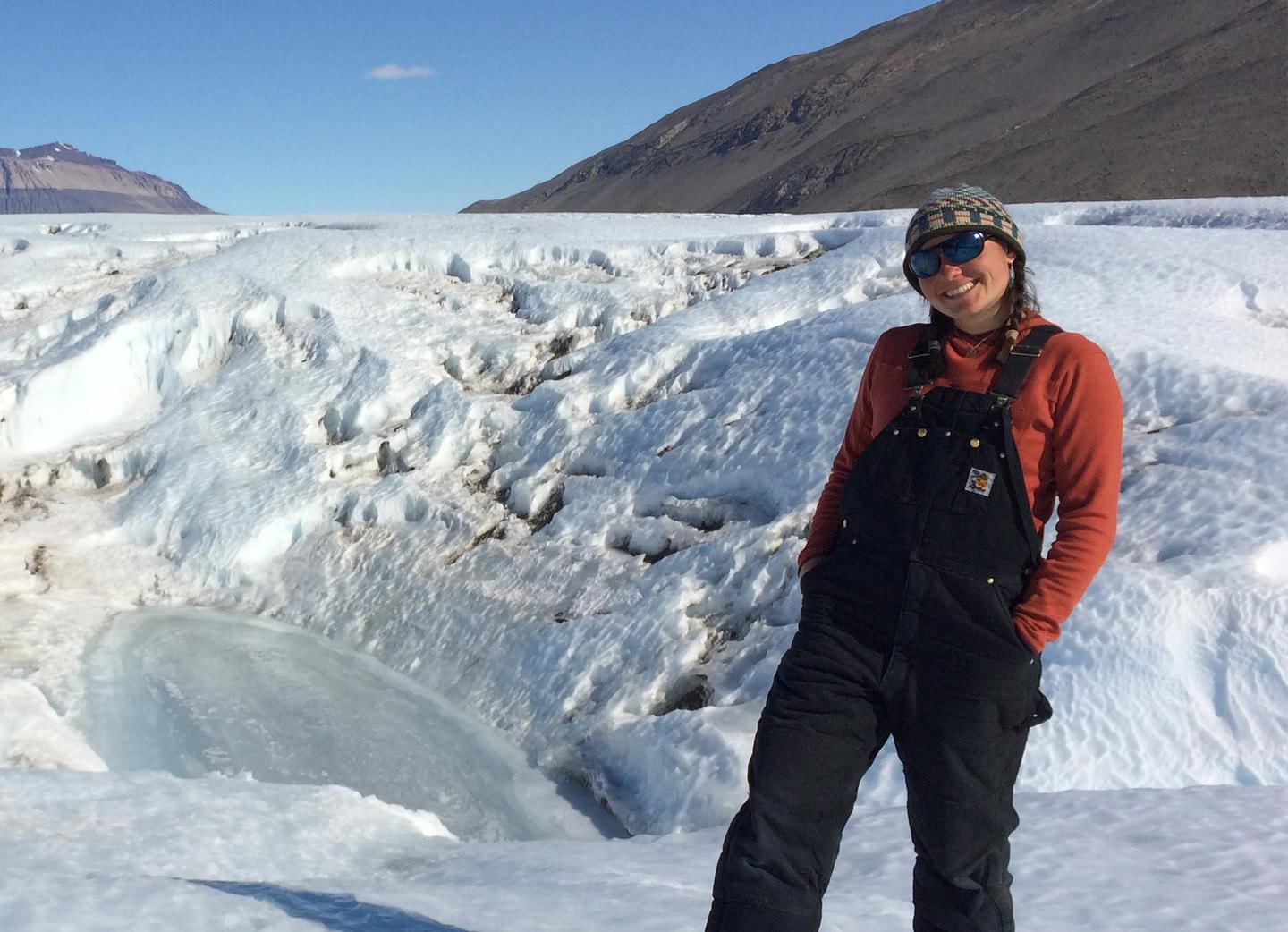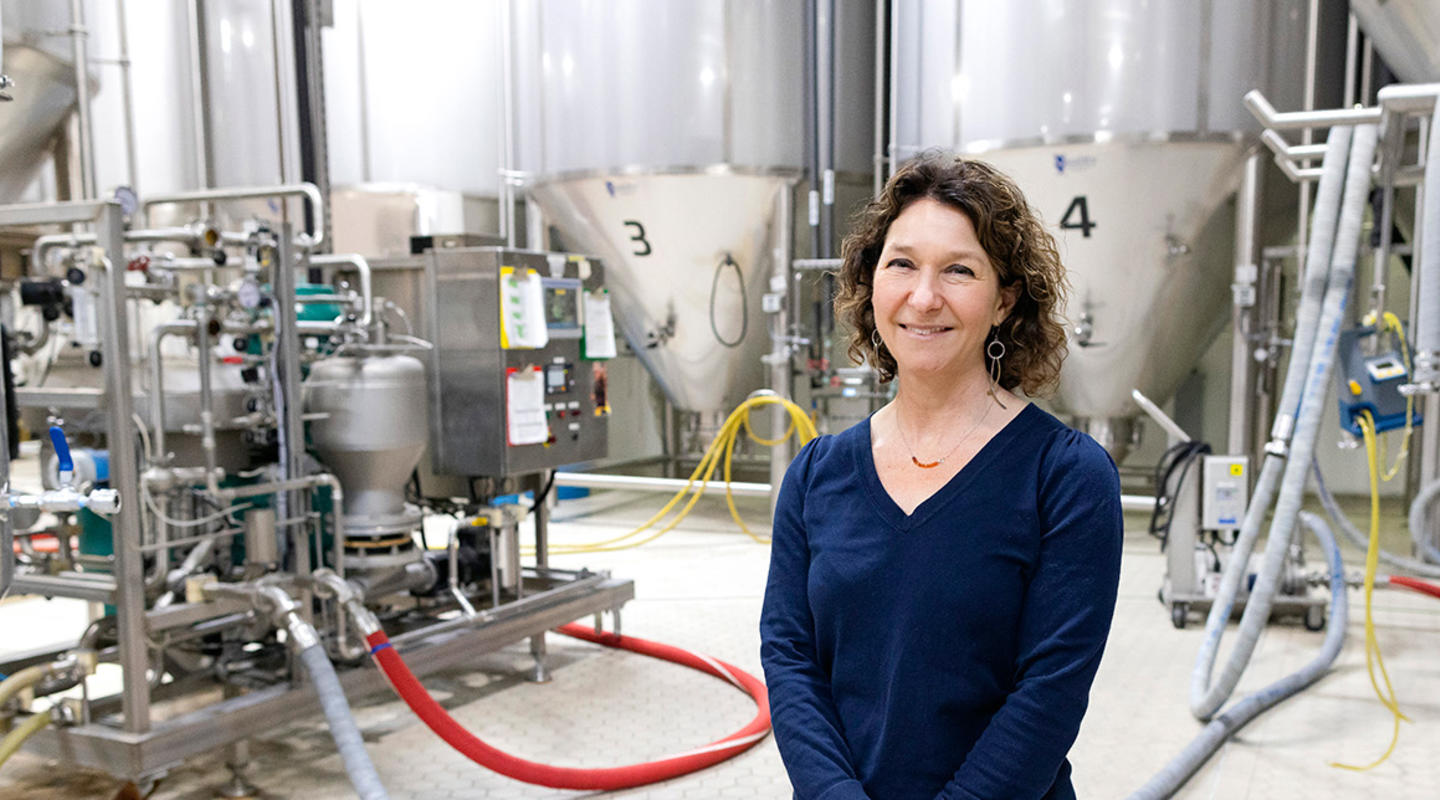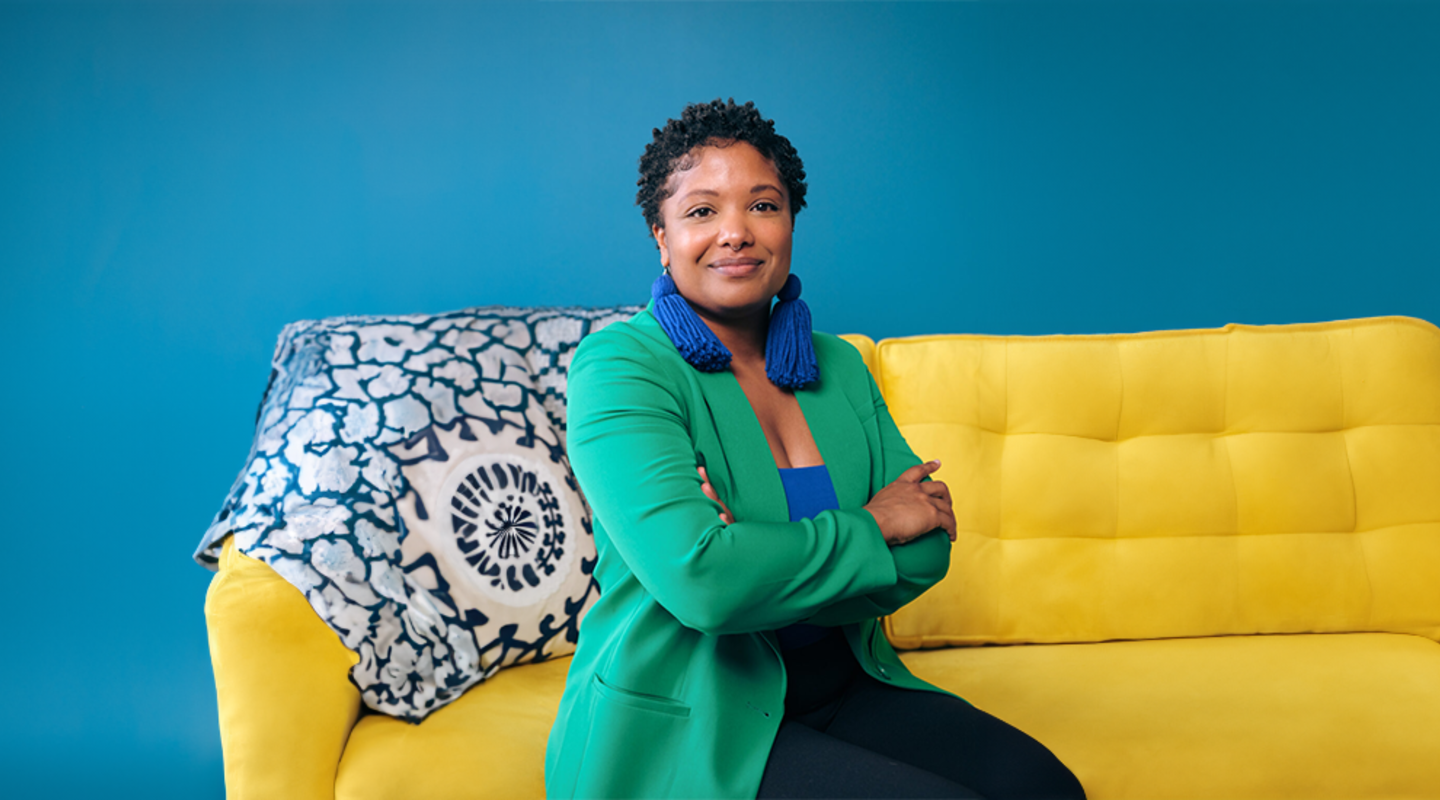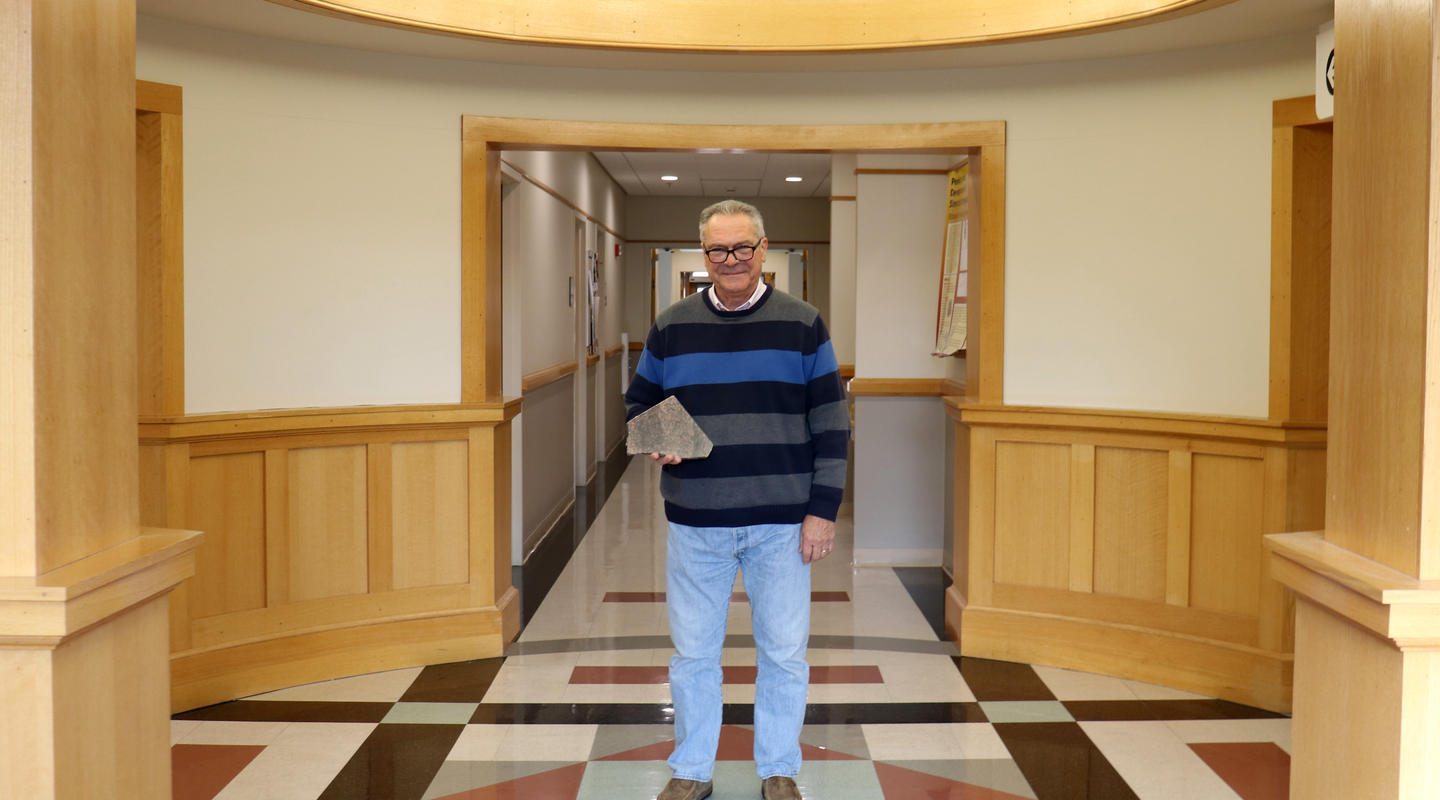
The U of M’s Heidi Roop doing field work in Antarctica. Photography by Peter Neff.
Heidi Roop often finds herself serving as a diplomat for climate science. Whether she’s talking to the public as a University of Minnesota Extension educator, keynoting the Minnesota Ag-Urban Partnership forum, or testifying before a Minnesota House committee to secure funding for a new Extension program to help communities understand and prepare for extreme weather events such as flooding and droughts, she brings the perspective of someone who has done the groundwork.
“I have a front-row seat to generating the science about climate change, and it can be really scary,” says Roop, who has studied the climate stories contained in lake sediment and ice cores from around the world. “But the future doesn’t have to be scary if we find common ground and come together as a community and collective.”
An assistant professor of climate science in the College of Food, Agricultural, and Natural Resource Sciences, Roop also directs the donor-supported U of M Climate Adaptation Partnership, which conducts research into climate change and works with communities across the state to apply that knowledge to manage their climate risks. In her new book, The Climate Action Handbook: A Visual Guide to 100 Climate Solutions for Everyone, she offers numerous ideas for how we can prevent climate change from getting worse and prepare for the future. We asked Roop to share tips for what we can do individually and as members of our community.
How did you get interested in climate science?
It stems back to opportunities I had as an undergraduate at Mount Holyoke College. I had a very supportive professor who created authentic research experiences for students. I participated in field research in Alaska. We were collecting cores from lakes across the state to understand how climate change was influencing glaciers and water resources in the Arctic. It changed my life.
What do we get wrong about climate change?
In the climate science community, we say things like “It’s all hands on deck” or “This is the crisis of our time.” Underneath that alarm is a stark reality. We also know that that messaging doesn’t work. We need to communicate the urgency of the challenge while also welcoming more people into the conversation and the solutions. Climate action isn’t only about counting emissions avoided or reduced. Actions like driving electric car certainly have a big impact, but there are many things we all can do—whether it’s reducing emissions from our activities or engaging in climate action planning in our communities. Every action matters, and there are a multitude of actions we can choose from.
Is that what prompted you to write the book?
At the end of every workshop or talk I do, the hands go up and people say, “I understand how dire it is and that there are all these impacts, but what I can I do?” That’s often followed by, “But does it matter? Do individual actions matter?”
I always felt like I had an inadequate answer to that question. The more I showed up in these places, I thought the way we’re talking about solutions and inviting people to participate in climate action is pretty exclusionary. Many commonly discussed climate actions are really expensive, like electrifying your appliances or putting solar panels on your roof. Many actions are also framed as sacrificial actions: You have to give something up in order to contribute to solutions.
The book is an attempt to broaden the conversation, to help people see themselves as a catalyst for changes big and small, no matter their financial resources, where they live, where they work, or what they value.
What are you doing now that you weren’t before you wrote the book?
I’m certainly more attuned to the many ways my everyday decisions can also be climate actions. I’ve also learned there are many motivations for my decisions that can also bring climate benefits. For example, I’ve realized that many climate actions are better for my family finances like not idling our cars, washing in cold water, or switching to an induction range. I’ve been motivated to engage more in the climate work happening in my community. I’m also incredibly fortunate to have climate as part of my career here at the University.


